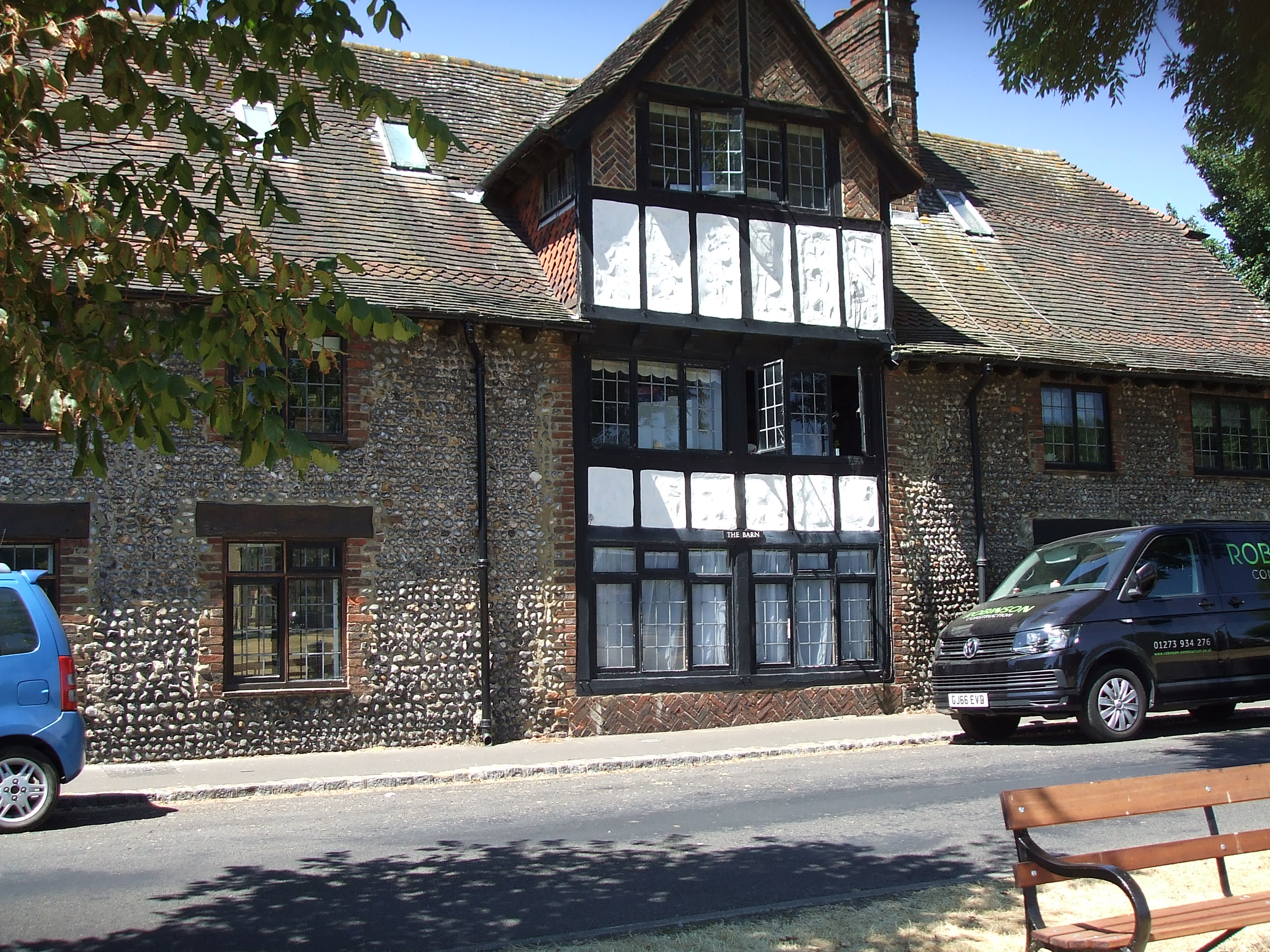Until the mid C19th Southwick was a farming and fishing village. There were a few cottages and a tithe barn on the west of The Green. A notable Roman Villa sat to the east of Southwick Street (a Scheduled Ancient Monument), and finds are on show in the Manor Cottage Heritage Centre. Manor Cottage dates from the C16th. Similar to other buildings here, it is clad in coursed flint and has red brick quoins and dressings. See the Southwick Community Centre for information.
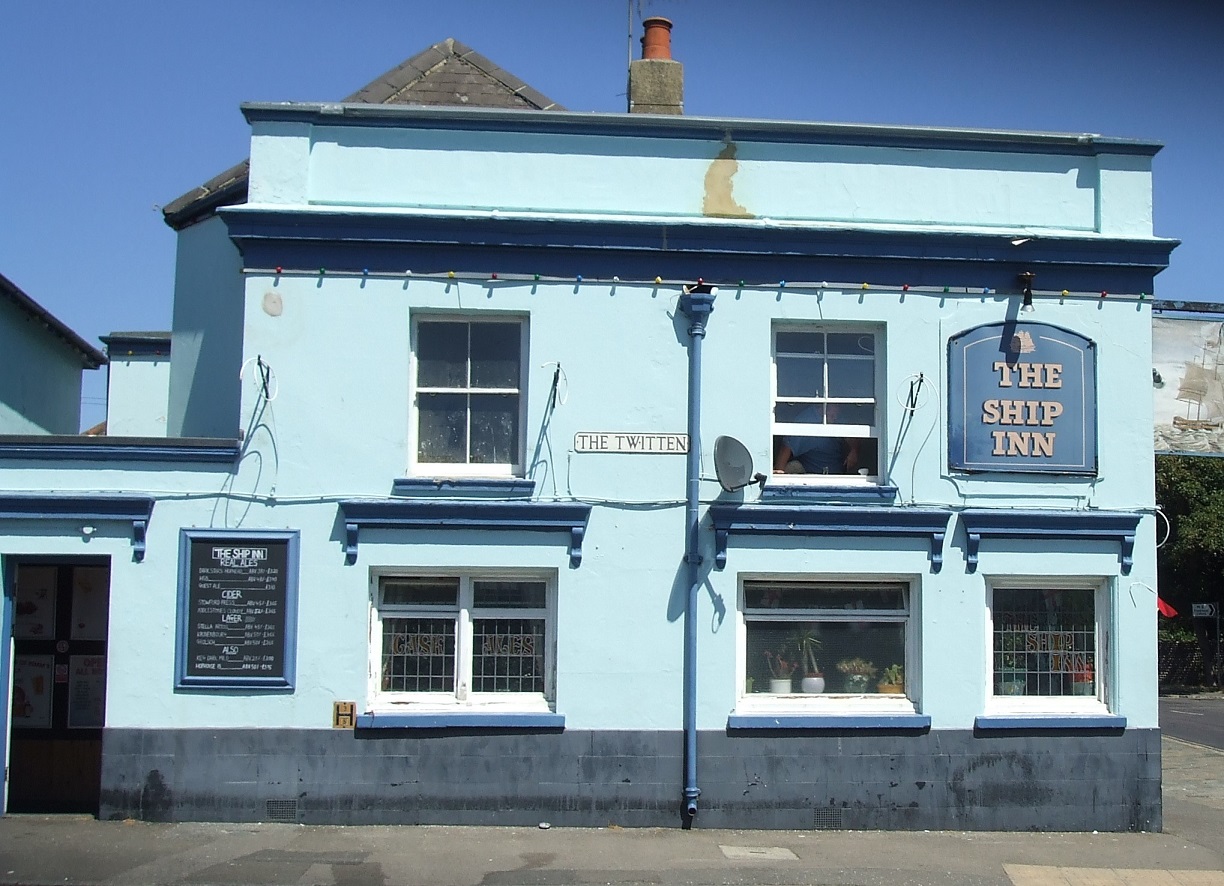
The Ship, The Twitten © Randall 18
The Green remains central to the town and gives it a village feel. With the coming of the railway and opening up of the harbour the village grew into a town. There is a mix of styles and periods in the town’s buildings. There’s also a strong sense of place with lovely flint walls and other Sussex features. Entering the town from the late Victorian Town Hall, just through the viaduct is The Twitten – Sussex for alleyway. Like many others, this street leads to The Green and of course, The Cricketers!
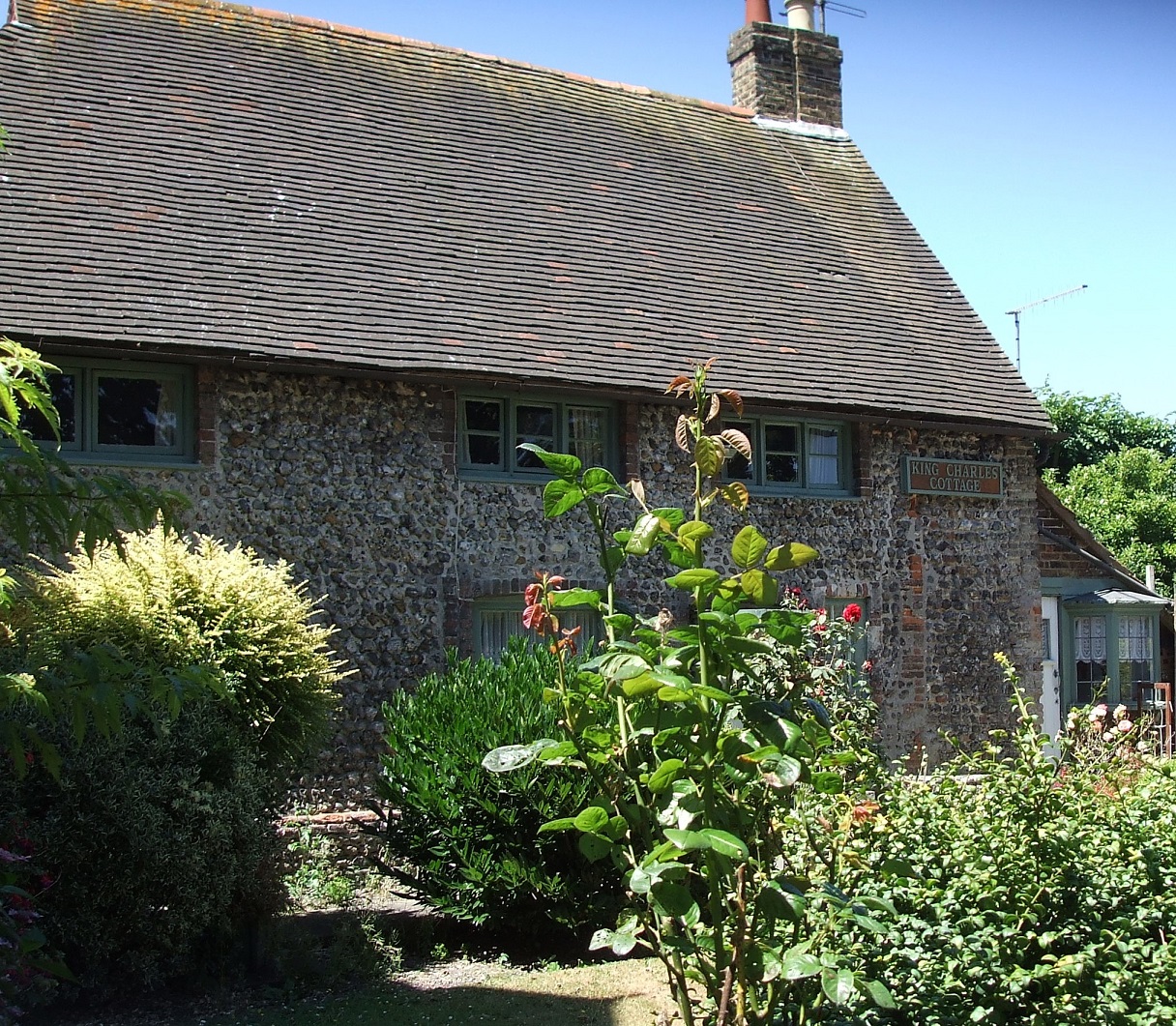
King Charles’ Cottage © Randall 18
Historic Southwick Green
The Green is a focal point with the war memorial and several large old trees, and on the west side there are pretty cottages. One Grade II listed cottage facing The Green is King Charles Cottage. The C16th timber-framed cottage is clad in flint and has irregular windows. Despite the name, there is no connection to King Charles. Also on the Green you can see another attractive timber-framed cottage, The Barn. Church Lane leads to the Parish Church.
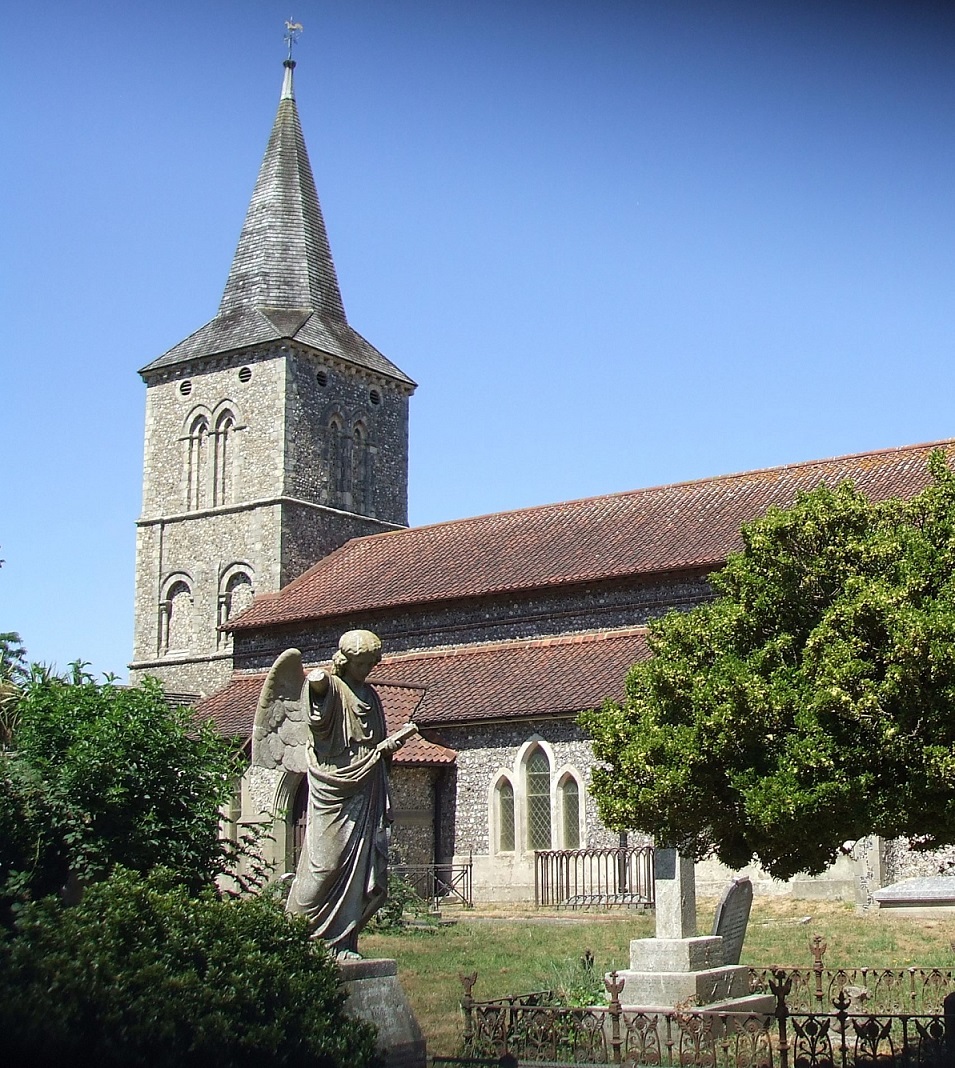
St Michael and All Angels © Randall 18
St Michael and All Angels’ Church
There has been a church on the site since Anglo Saxon times. The original wooden church had a
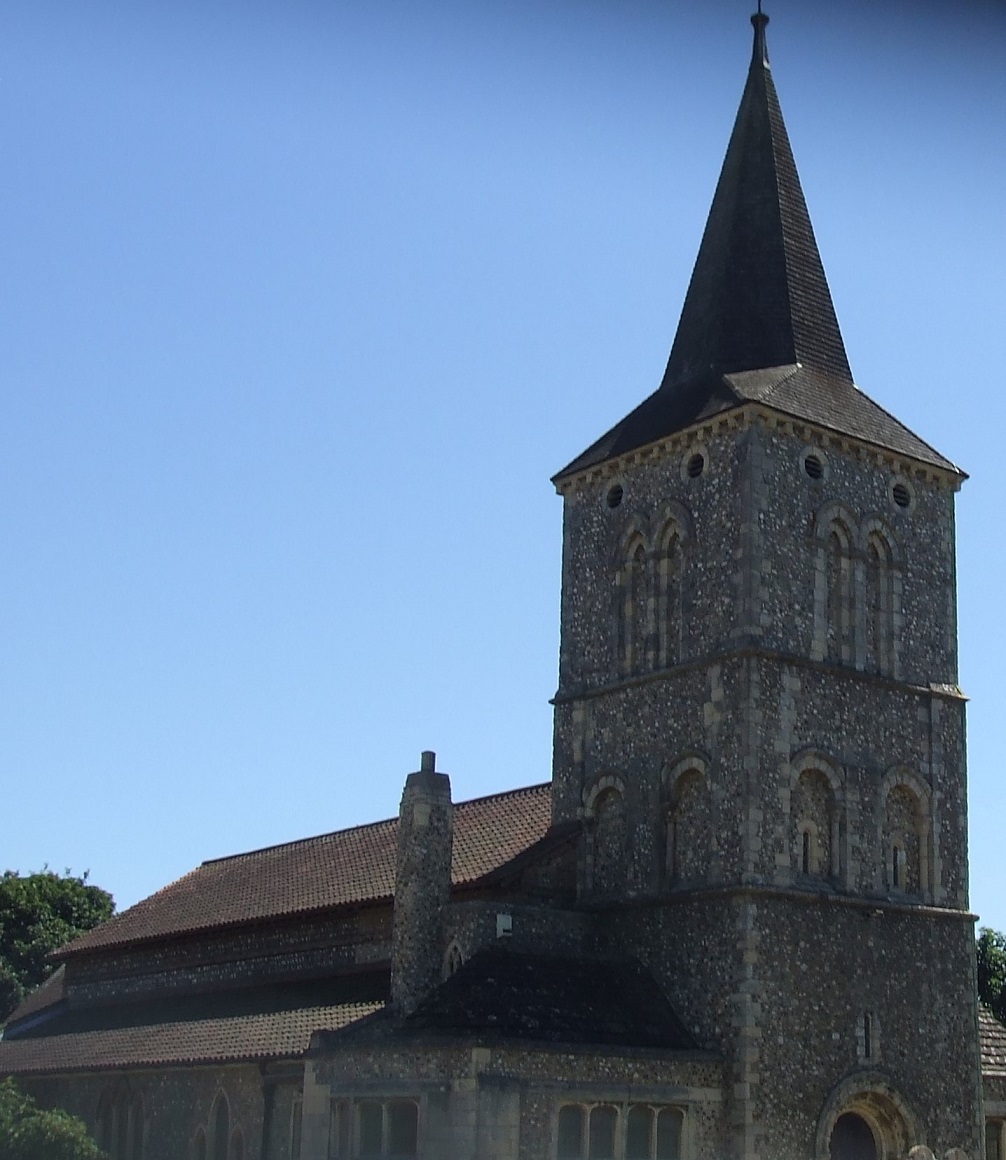
St Michael and All Angels tower © Randall 18
stone tower, and was mentioned in the Domesday book. In Norman times, a stone building replaced the old one. However as a result of a fire, John Garret rebuilt the central part in Victorian style in 1835. The church suffered bomb damage in WWII and John Denman supervised careful rebuilding of the tower in 1949. The tower has three stages, the first of which may be Saxon, with a shingled broach spire above.
The Grade II listed building is striking, and the churchyard is beautiful. The church is clad in coursed and uncoursed cobblestone. Also striking is the flint wall which surrounds the church and churchyard. On the north side there is a pretty lych gate dating from 1911. Another gate feature is the tapsel gate on the west side. This is a gate which swings on a central pivot and is unique to Sussex.
The harbour, Shoreham Port, has a mix of pleasure and working craft. The old Town Hall building, along from the Schooner Inn, is still an imposing sight, but is now office space.
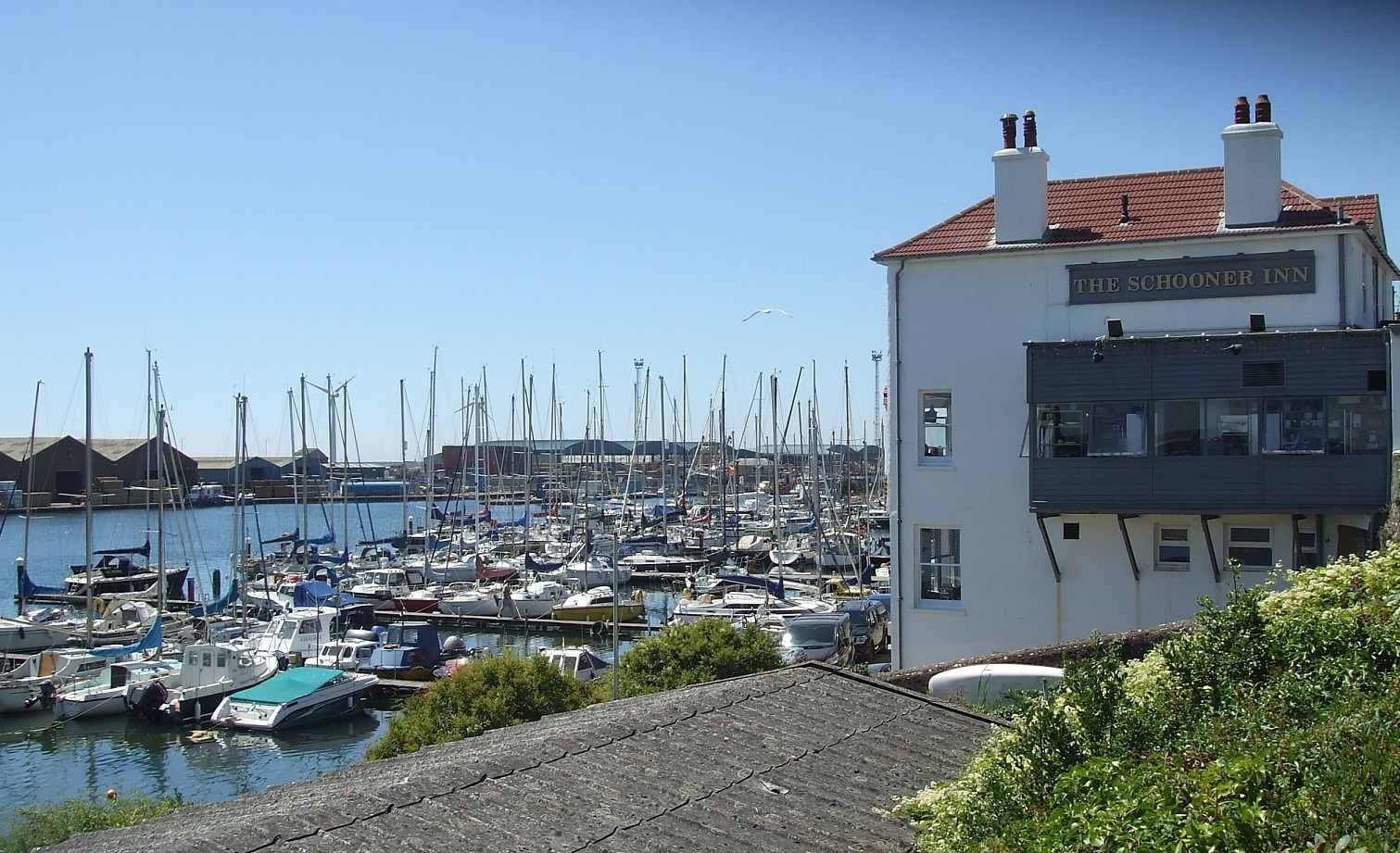
The Schooner, Southwick © Randall 18

